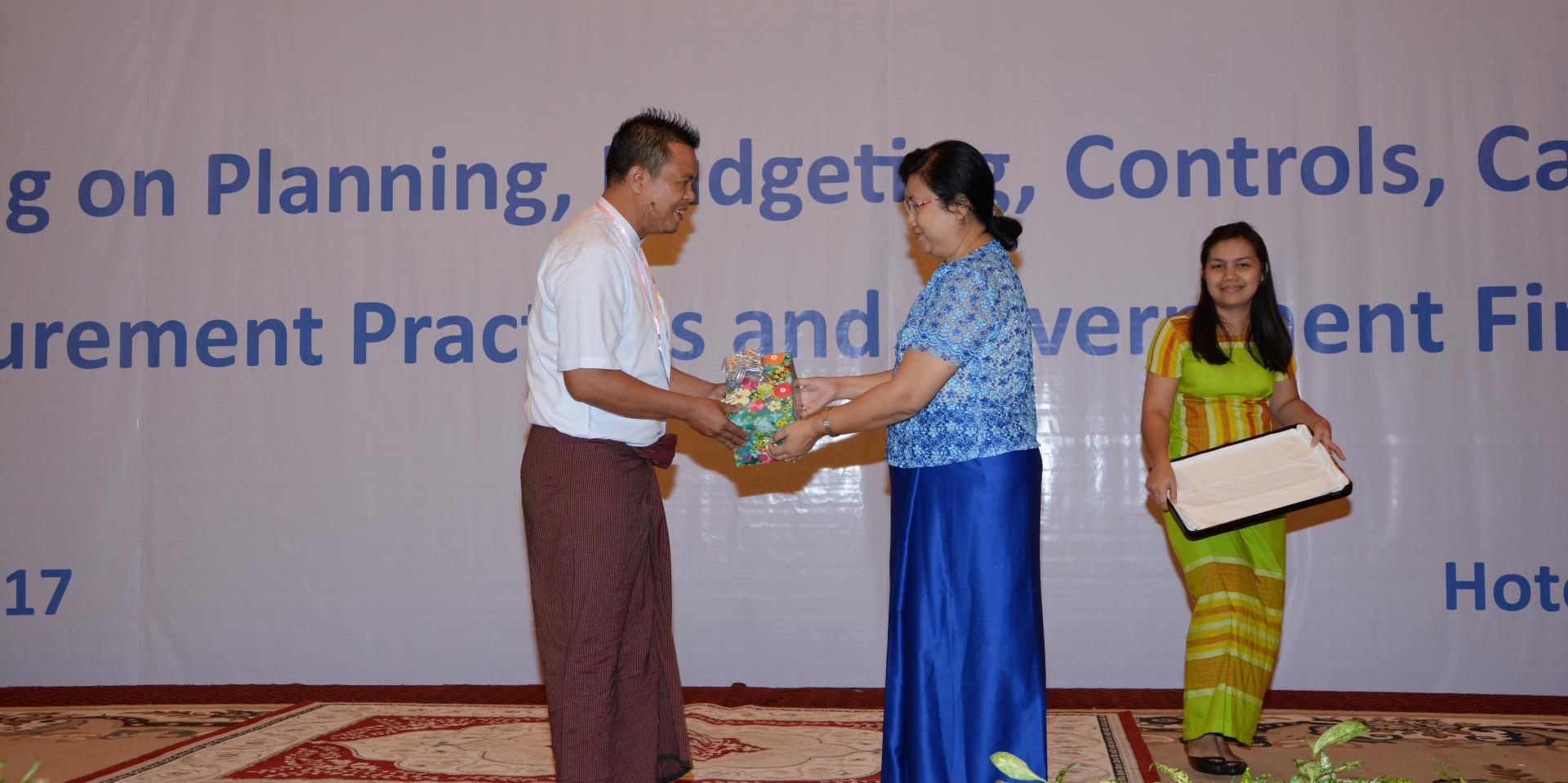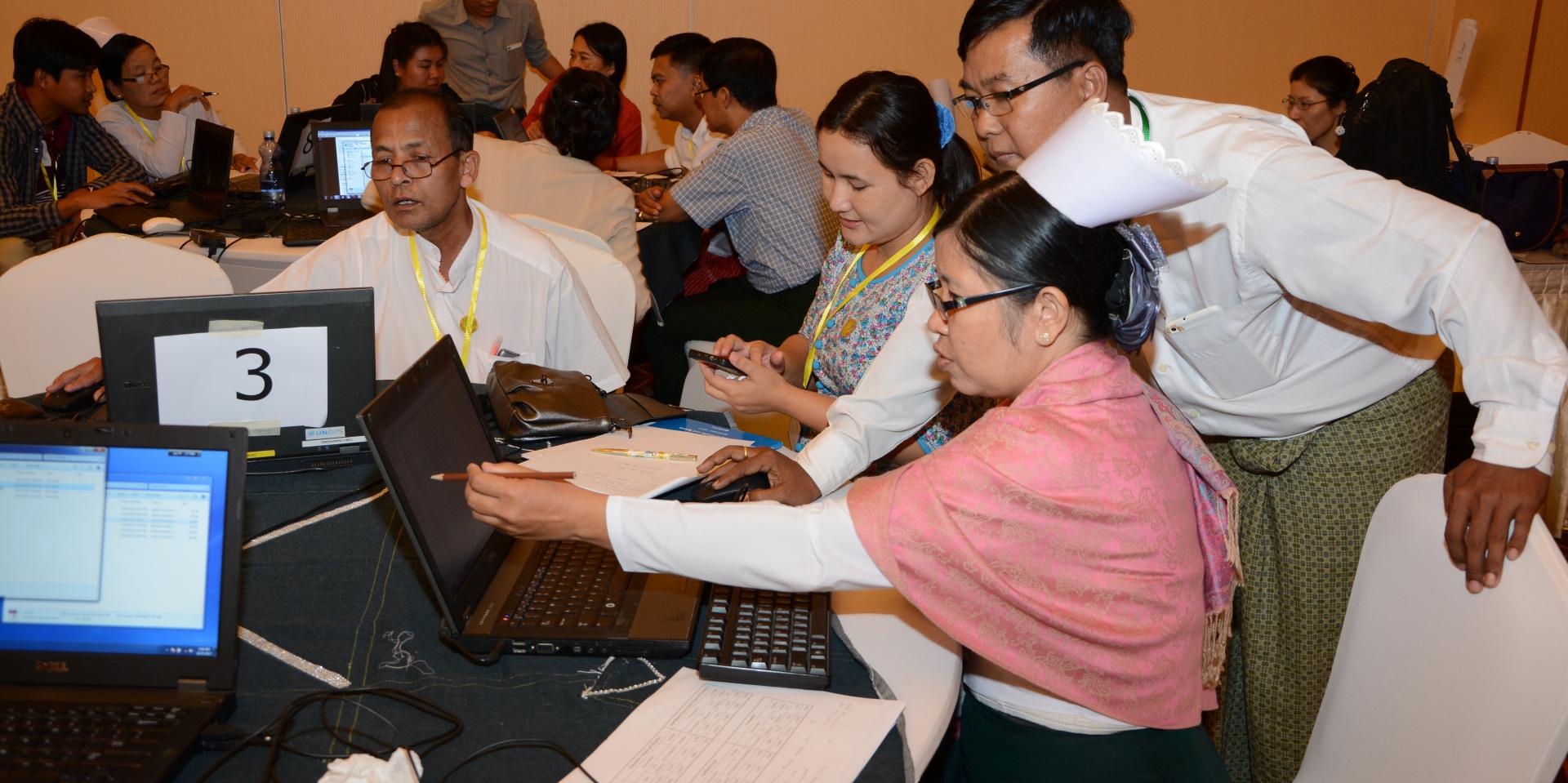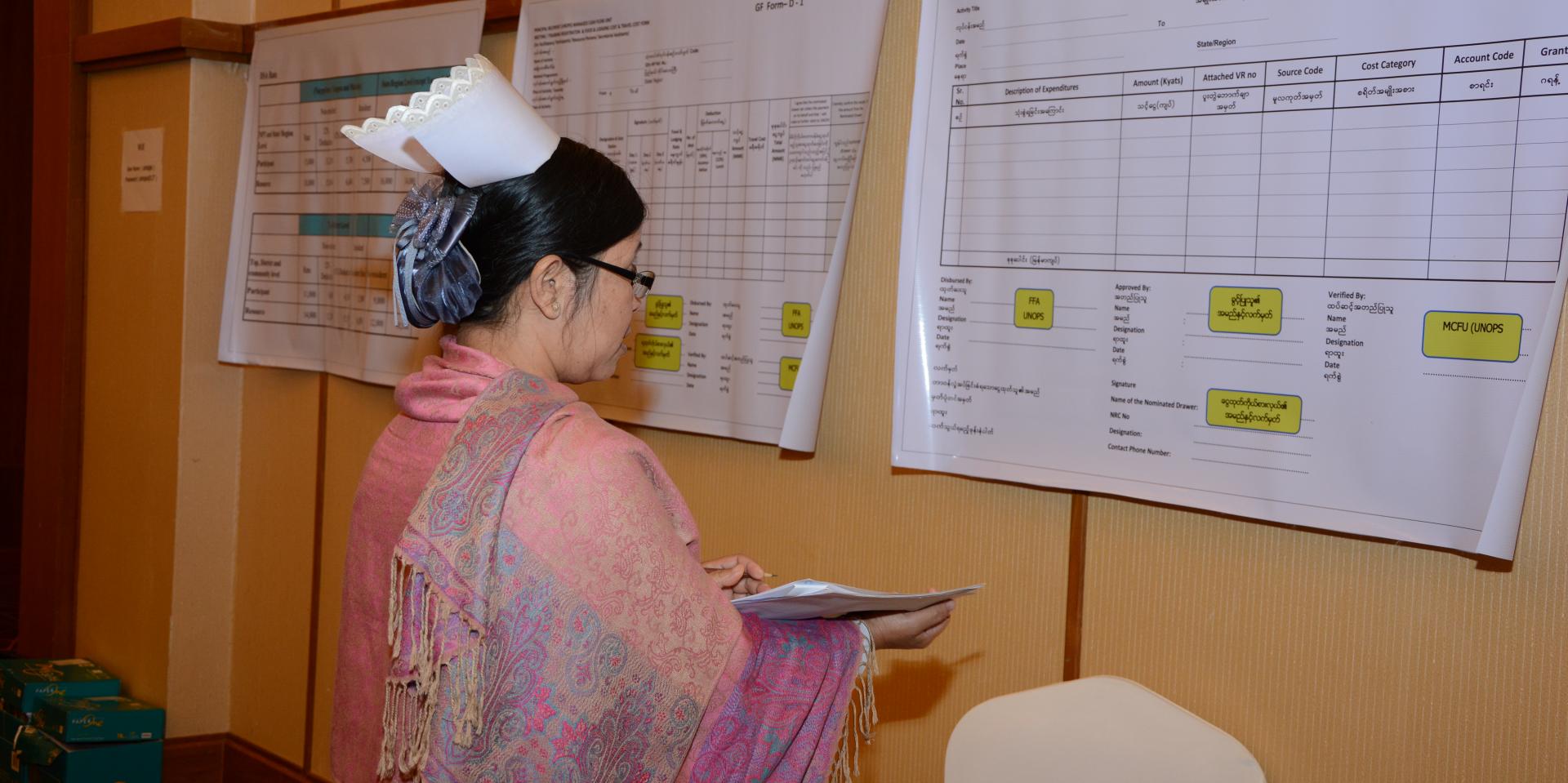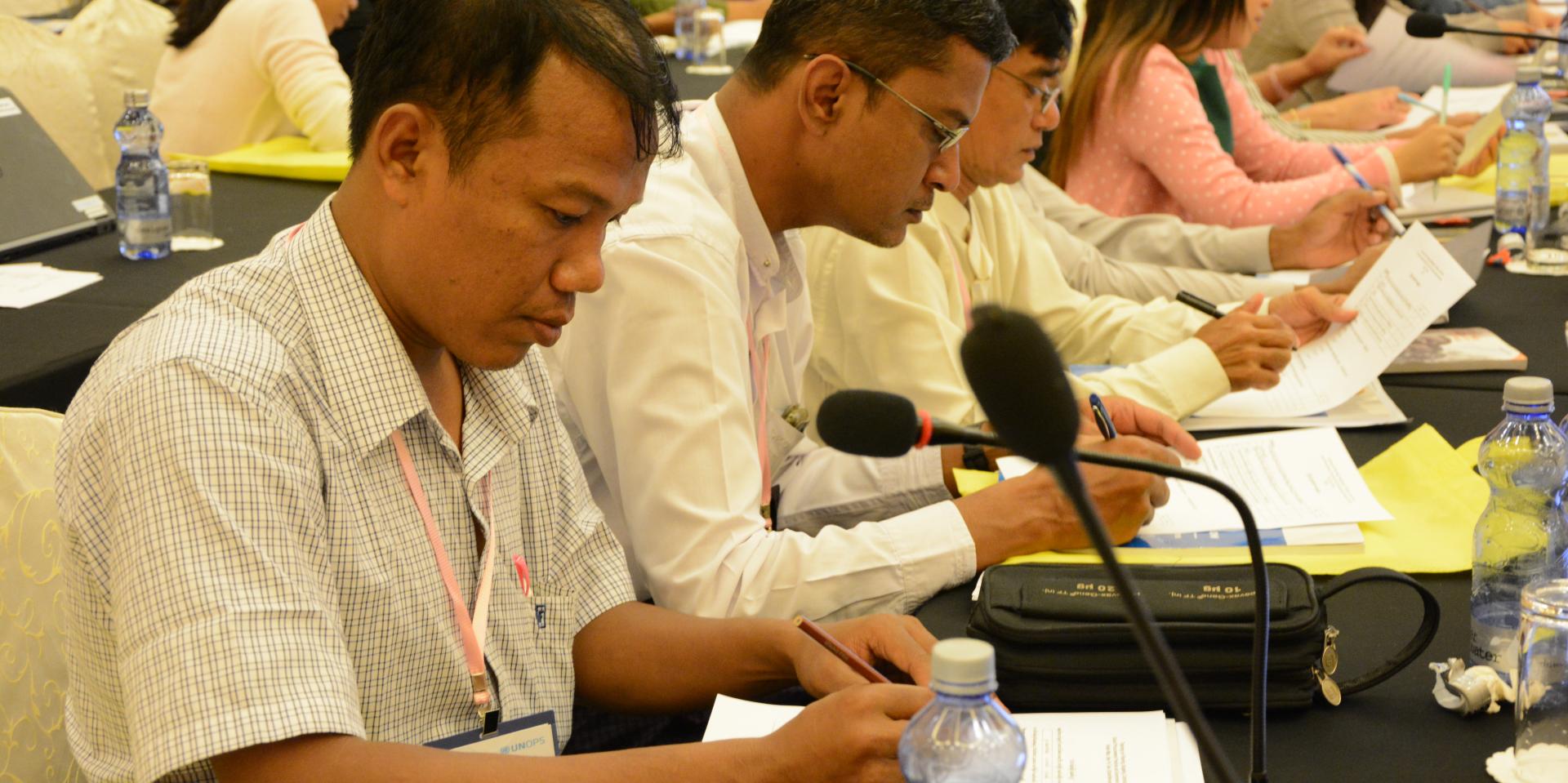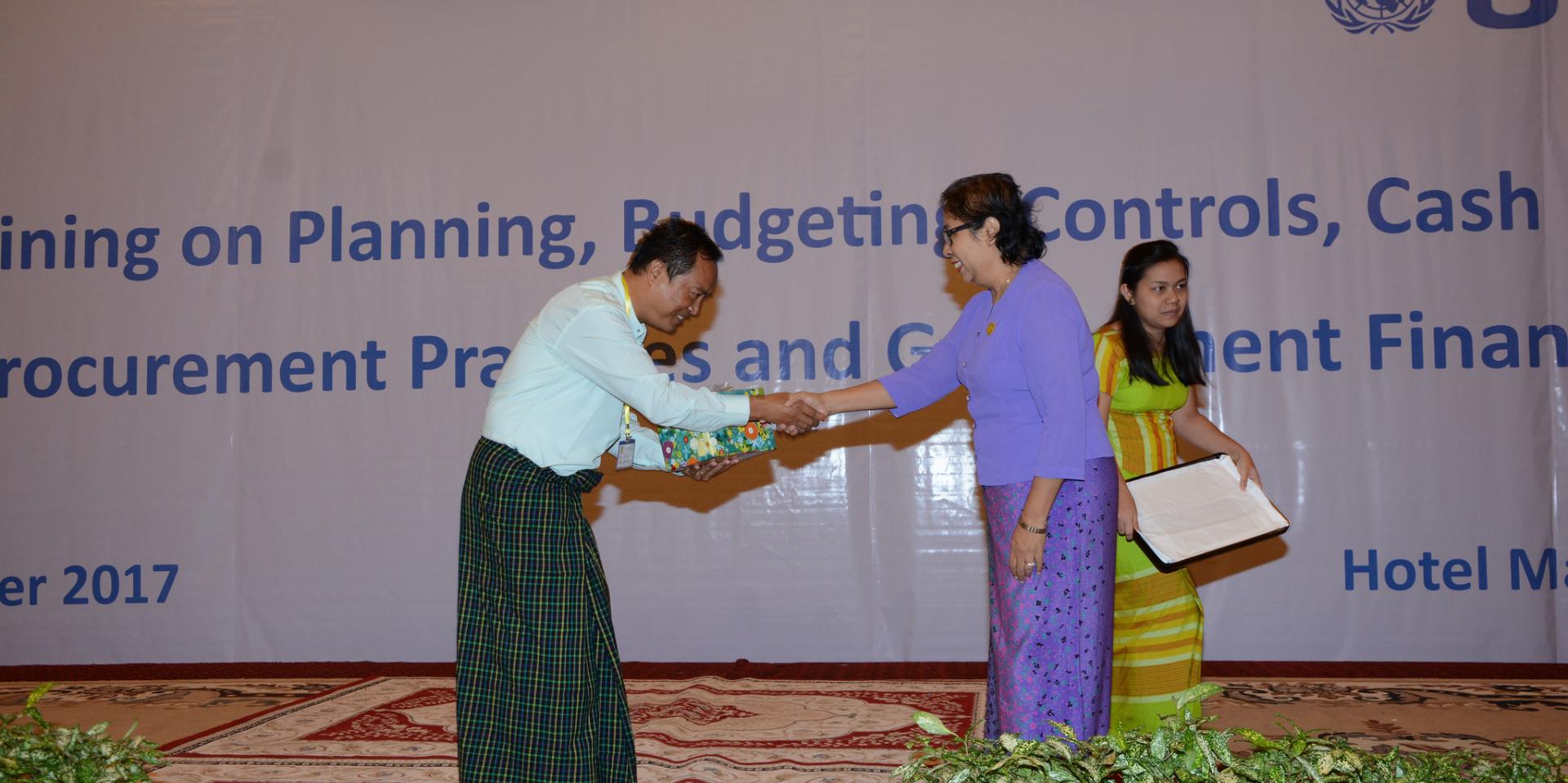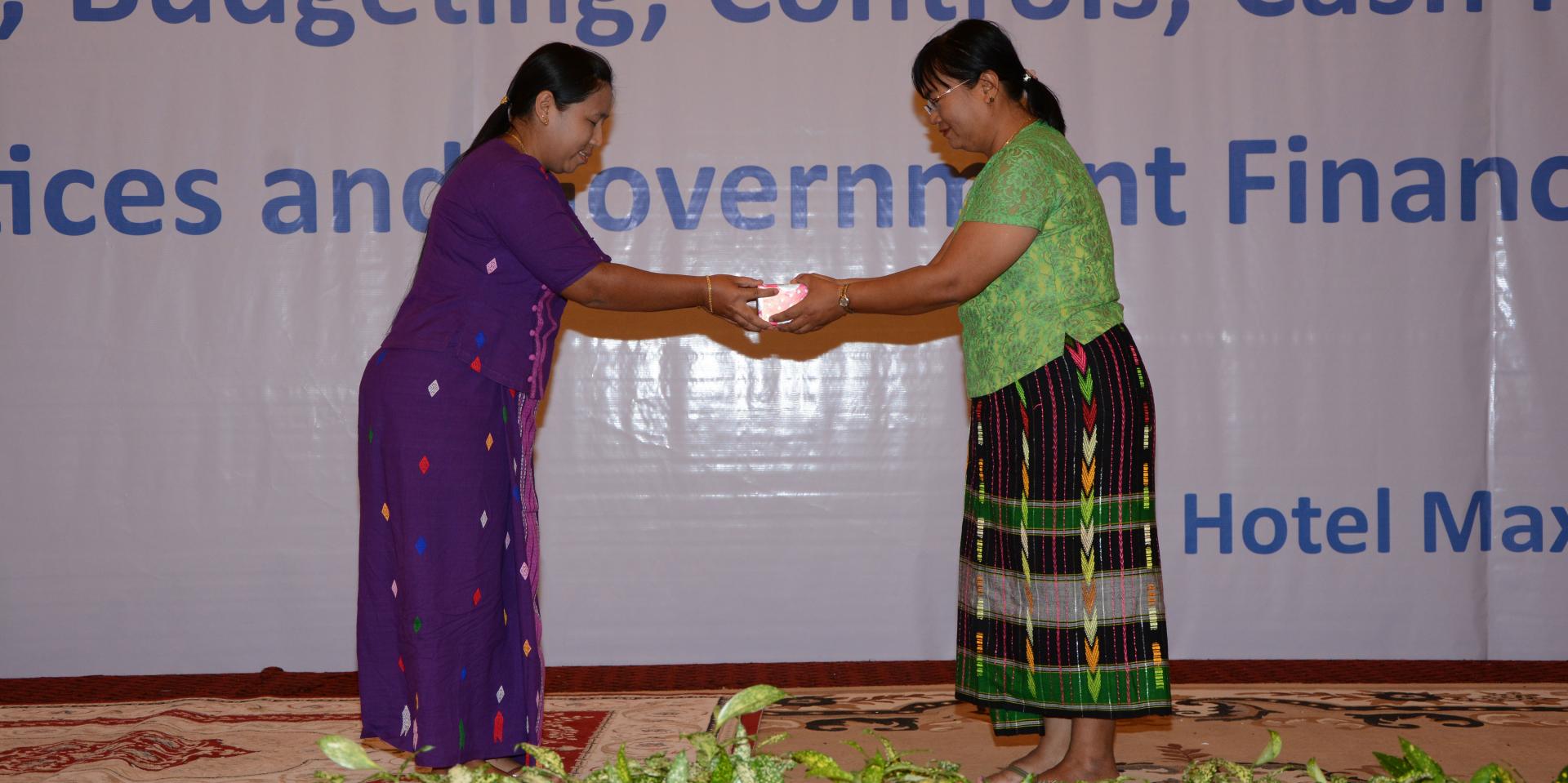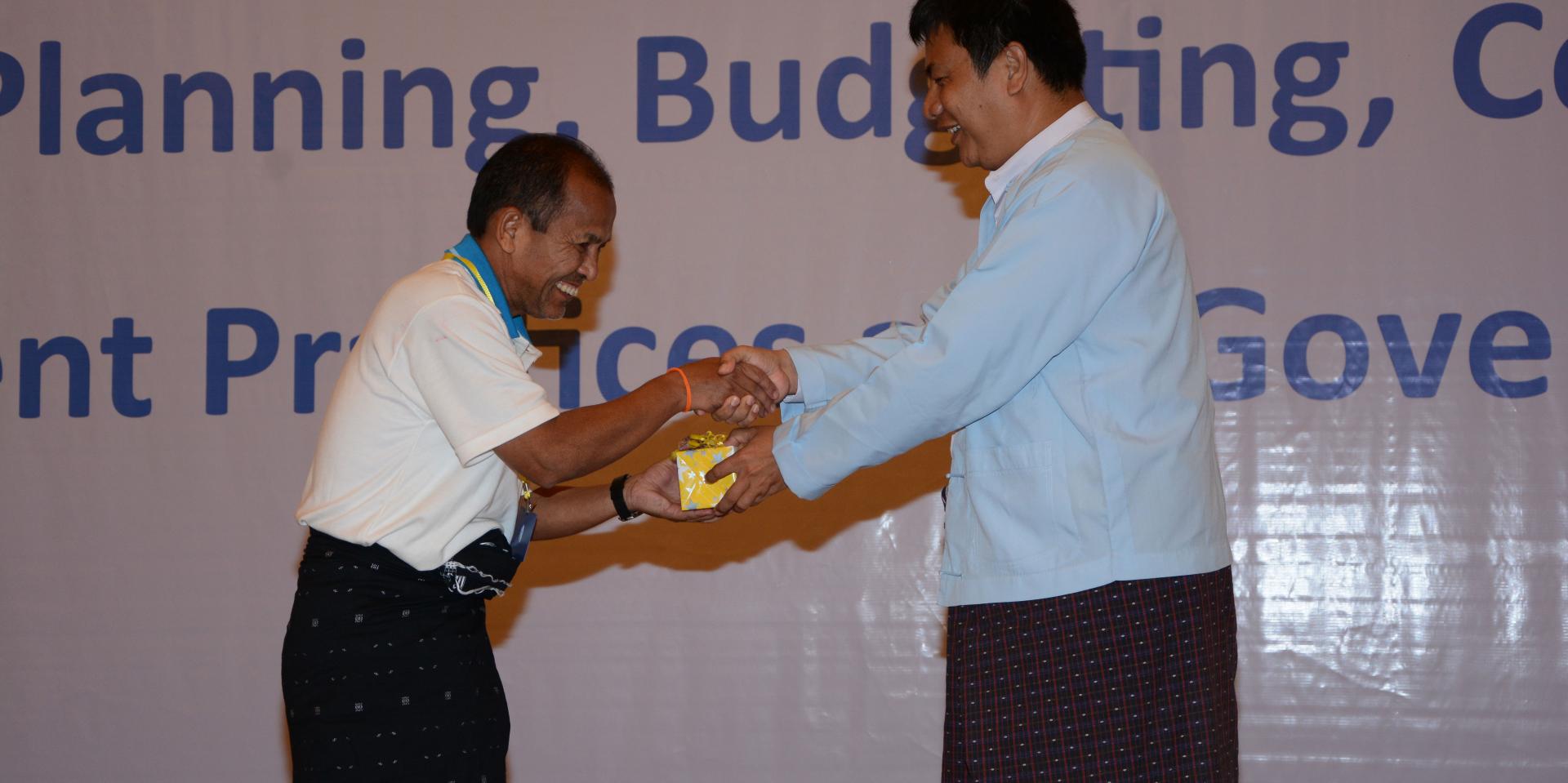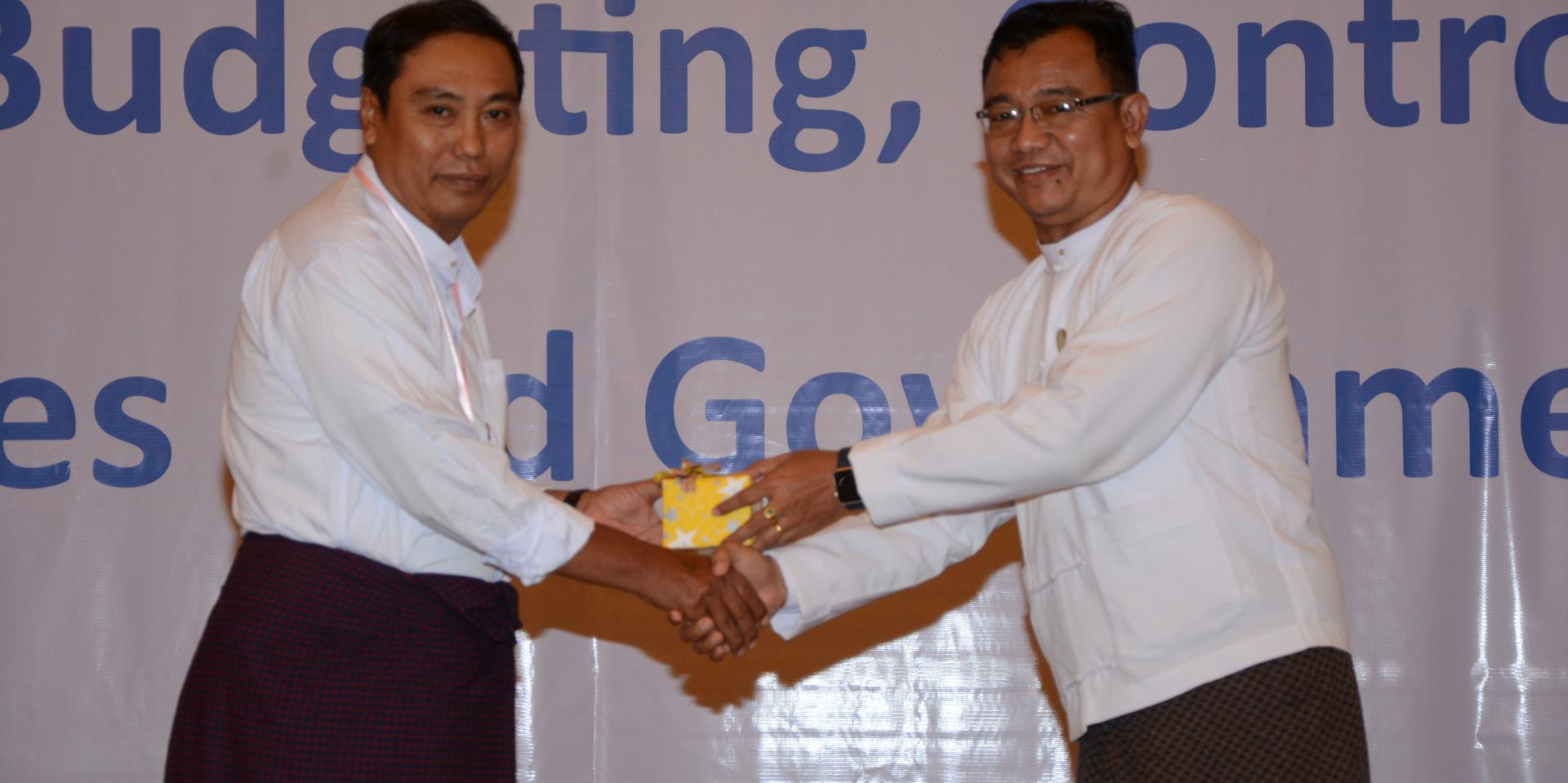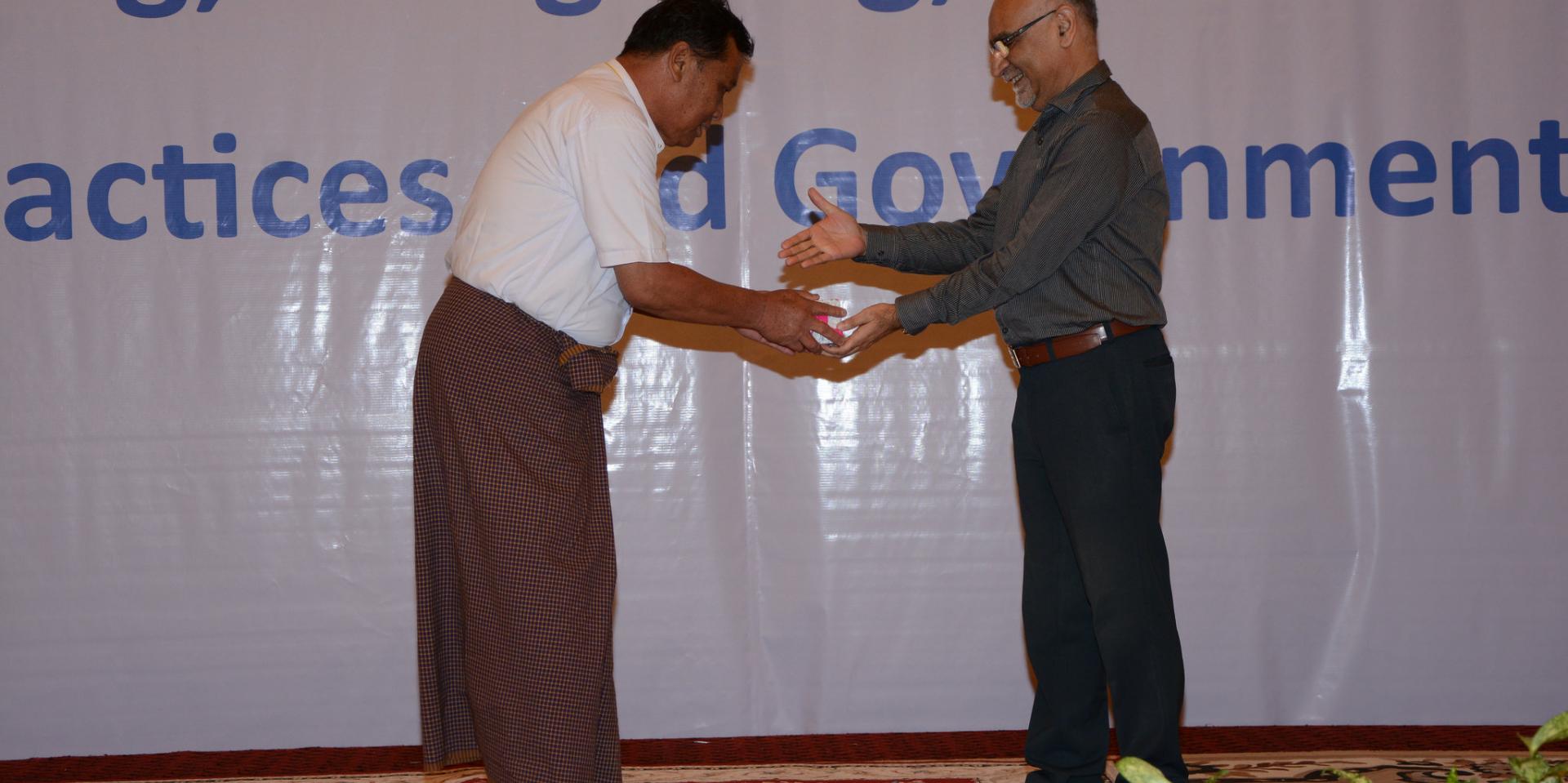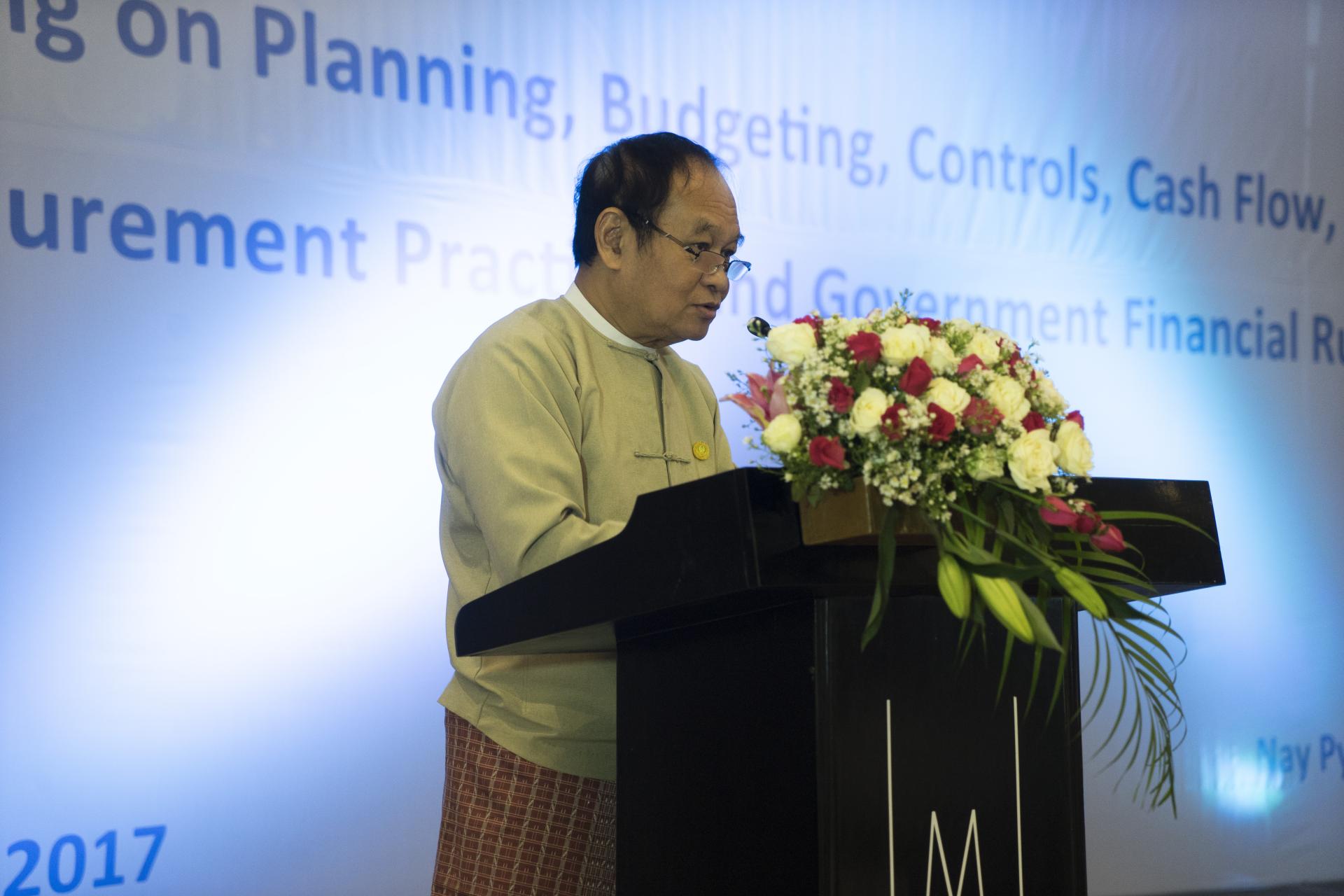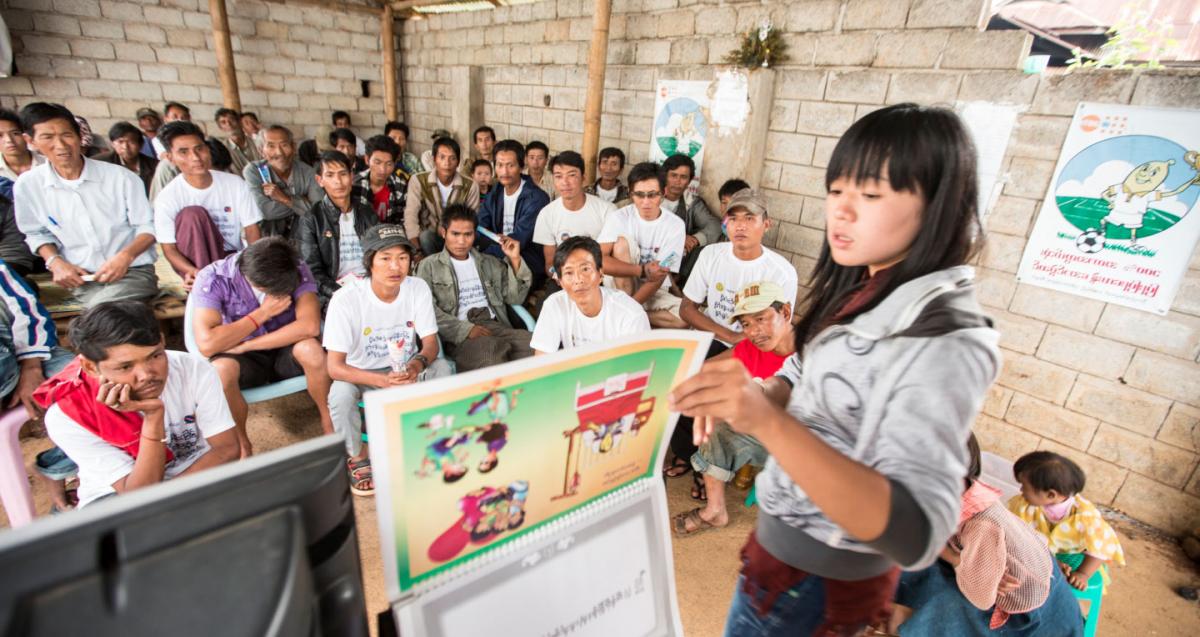Under the leadership of the Ministry of Health and Sports (MOHS), UNOPS in collaboration with the AIDS, tuberculosis and malaria National Programmes, organized training on ‘Planning, Budgeting, Controls, Cash Flow, Good Procurement Practices and Government Financial Rules’.
Six batches of two and half-day trainings (two parallel sessions per batch) were held in Nay Pyi Taw from 23 October to 29 November, with close to 900 government health staff taking part, from the 330 townships across the country.
Union Minister for Health and Sports H.E. Dr Myint Htwe opened the third batch of the training. In attendance at the opening session were the Regional and State Health Directors, Deputy Directors, District Medical Officers, Assistant Directors, Medical Superintendents, Township Medical Officers, Regional Officers, Team Leaders and financial personnel, together with the responsible officers from MOHS, the National Programmes and PR-UNOPS.
The aim of the training was to build the financial management capacities of officers working in the National Health System, and thereby to strengthen the health system.
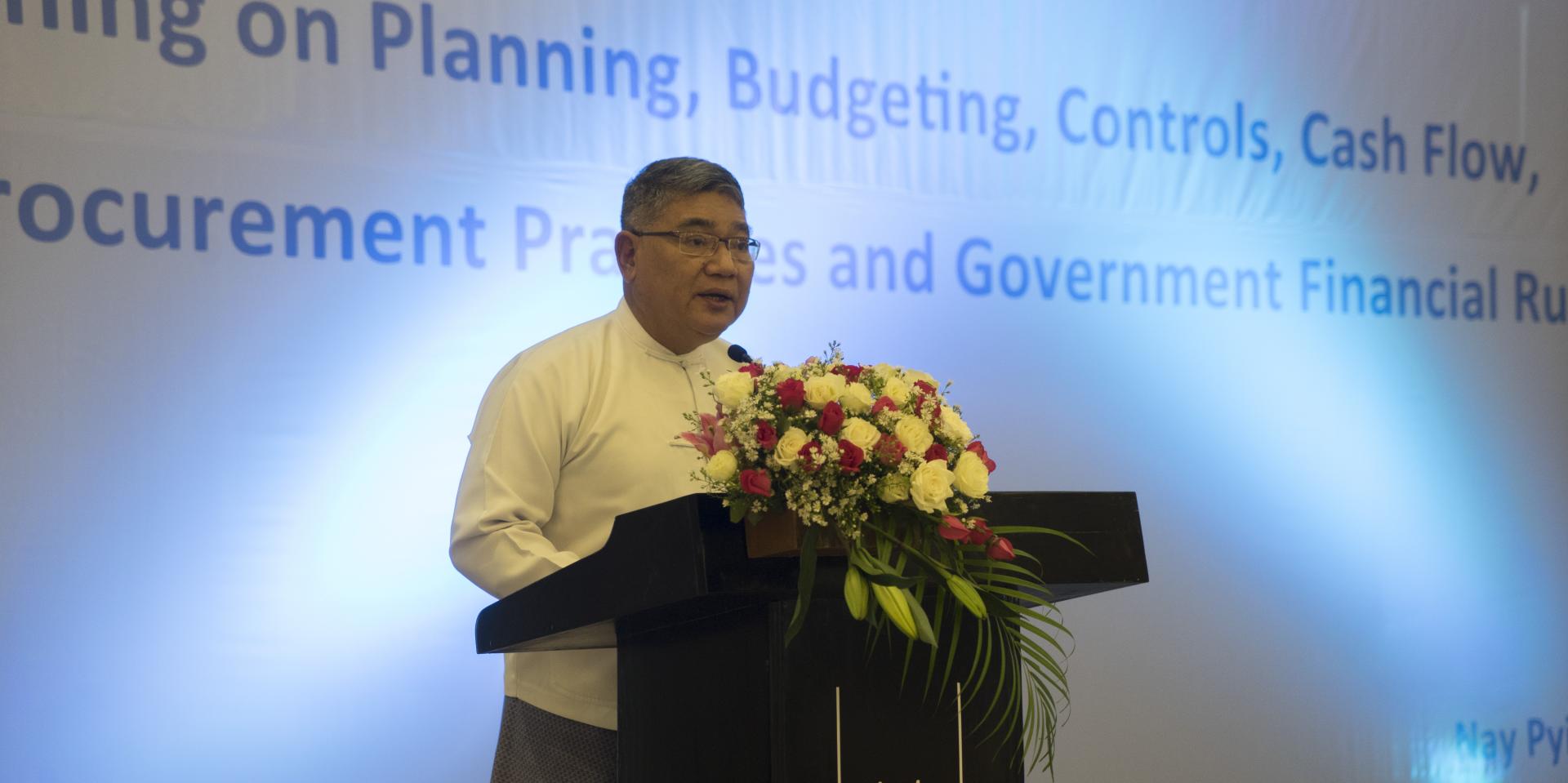
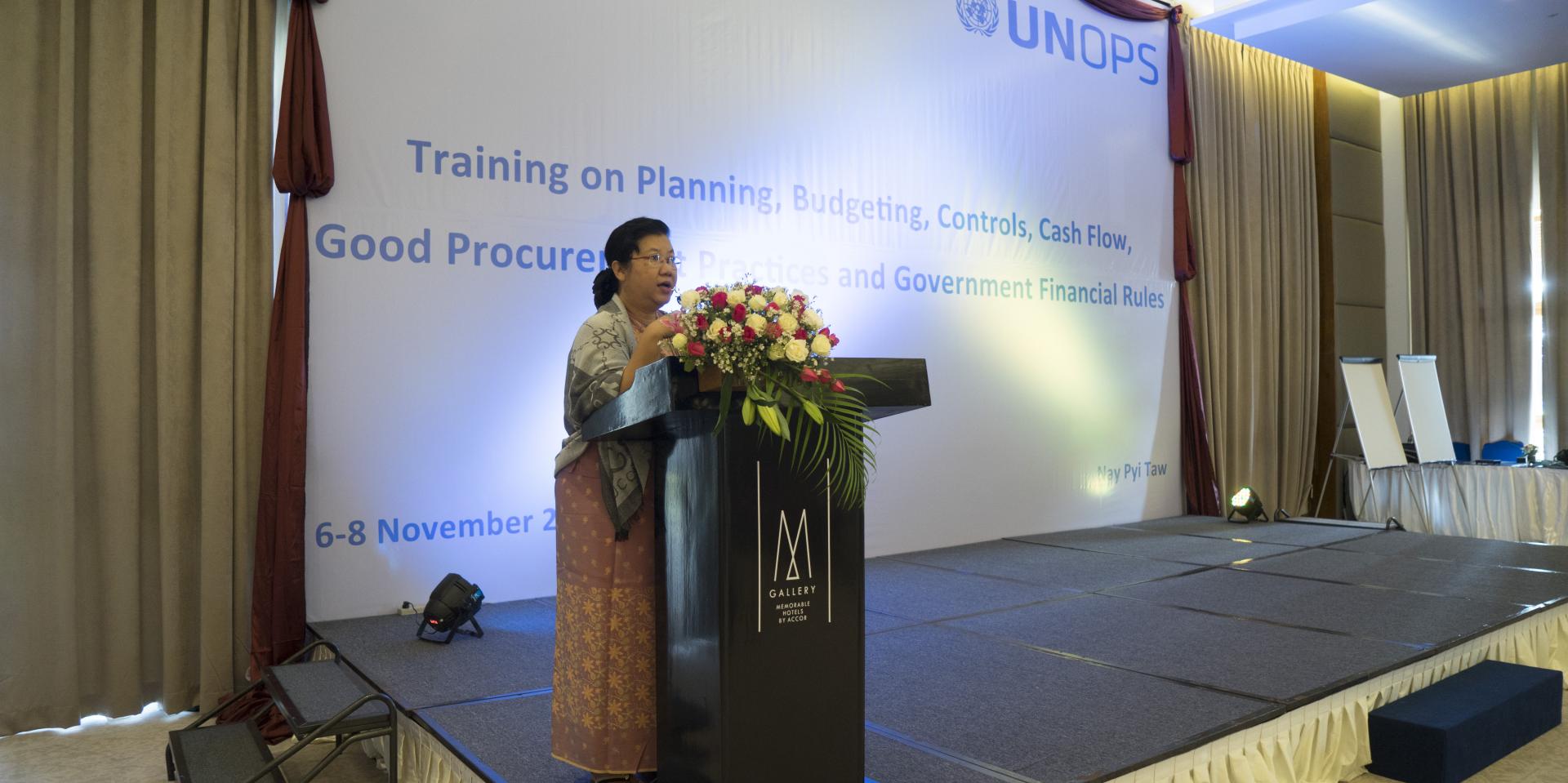
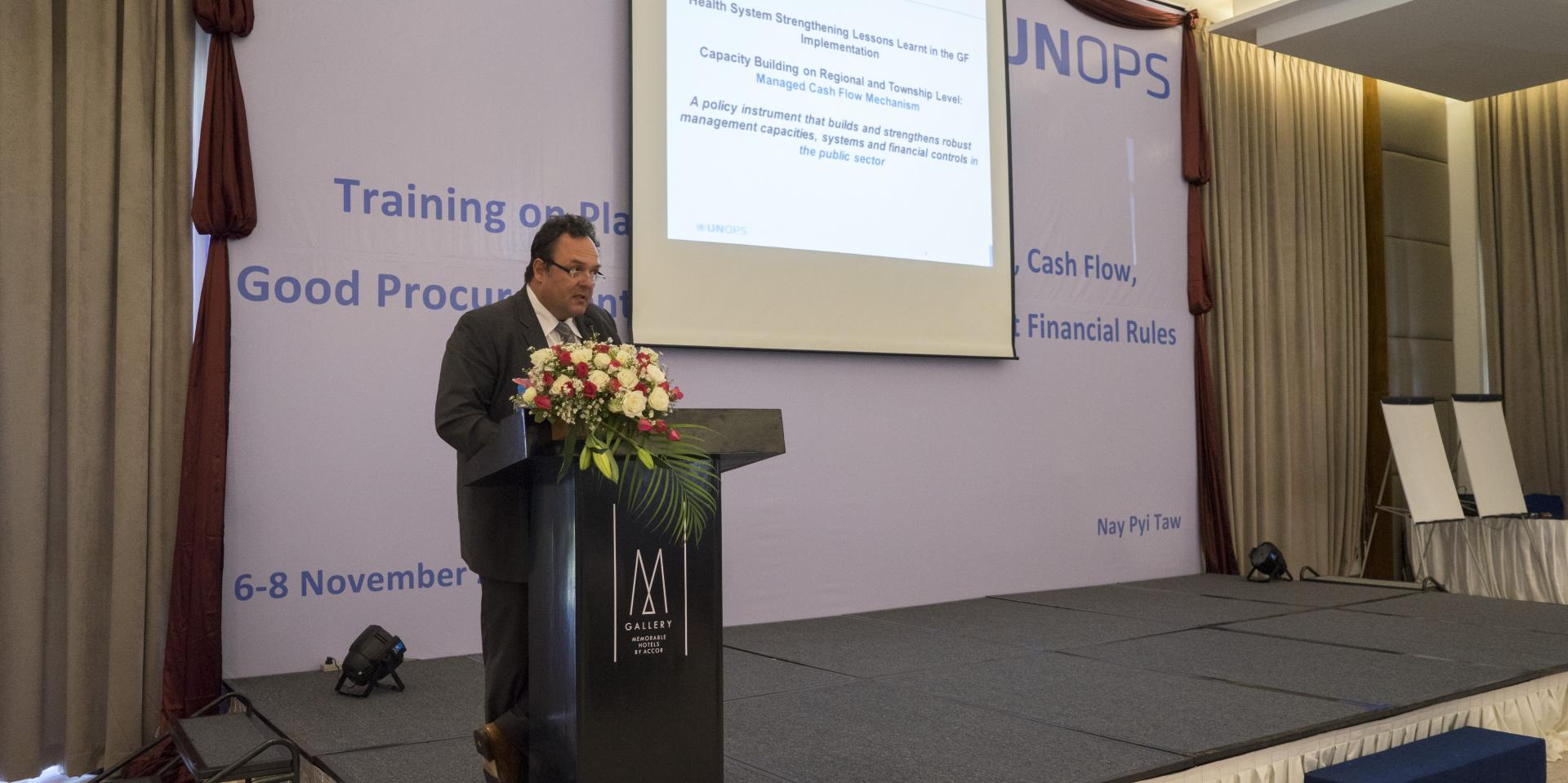
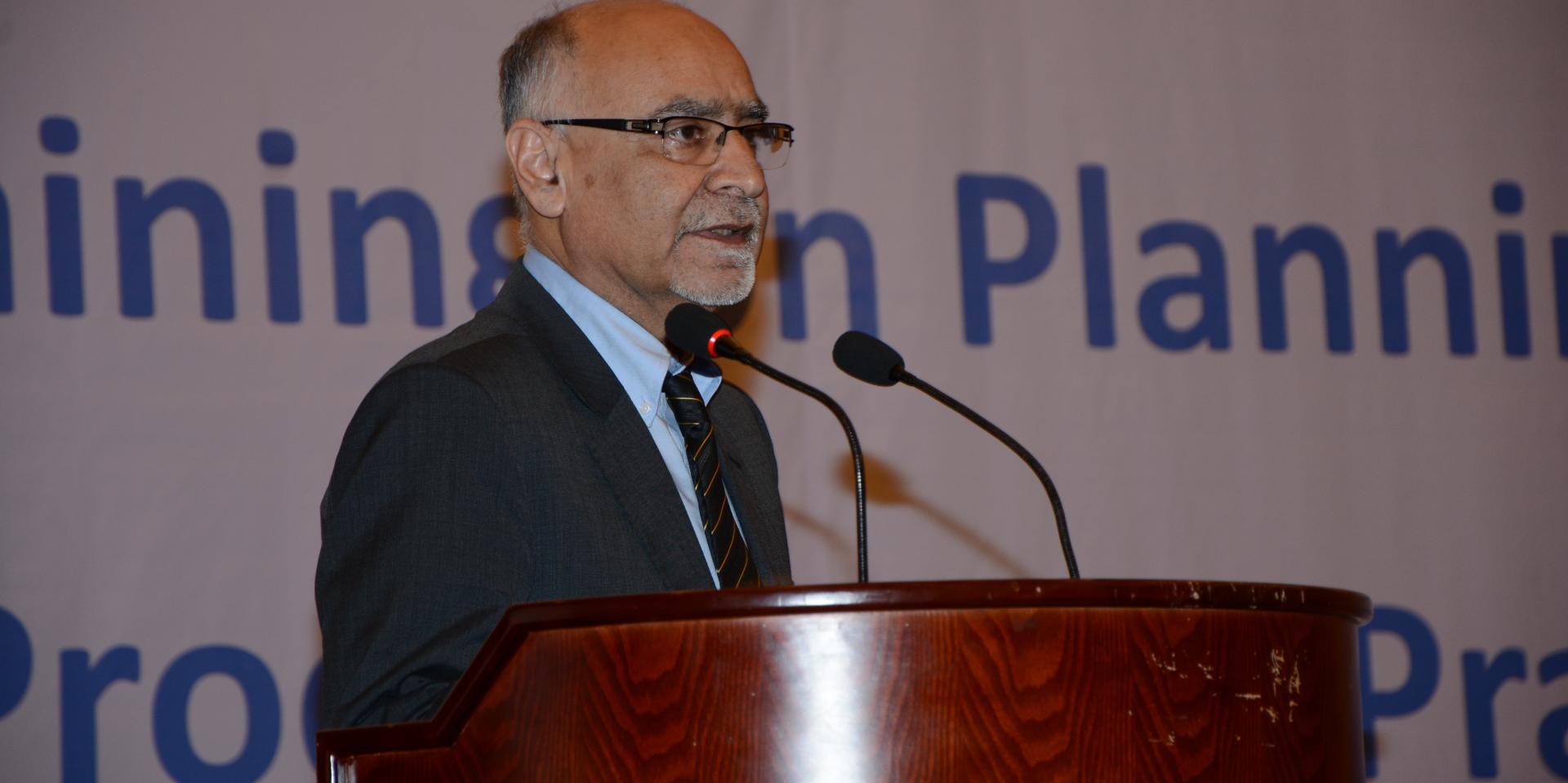
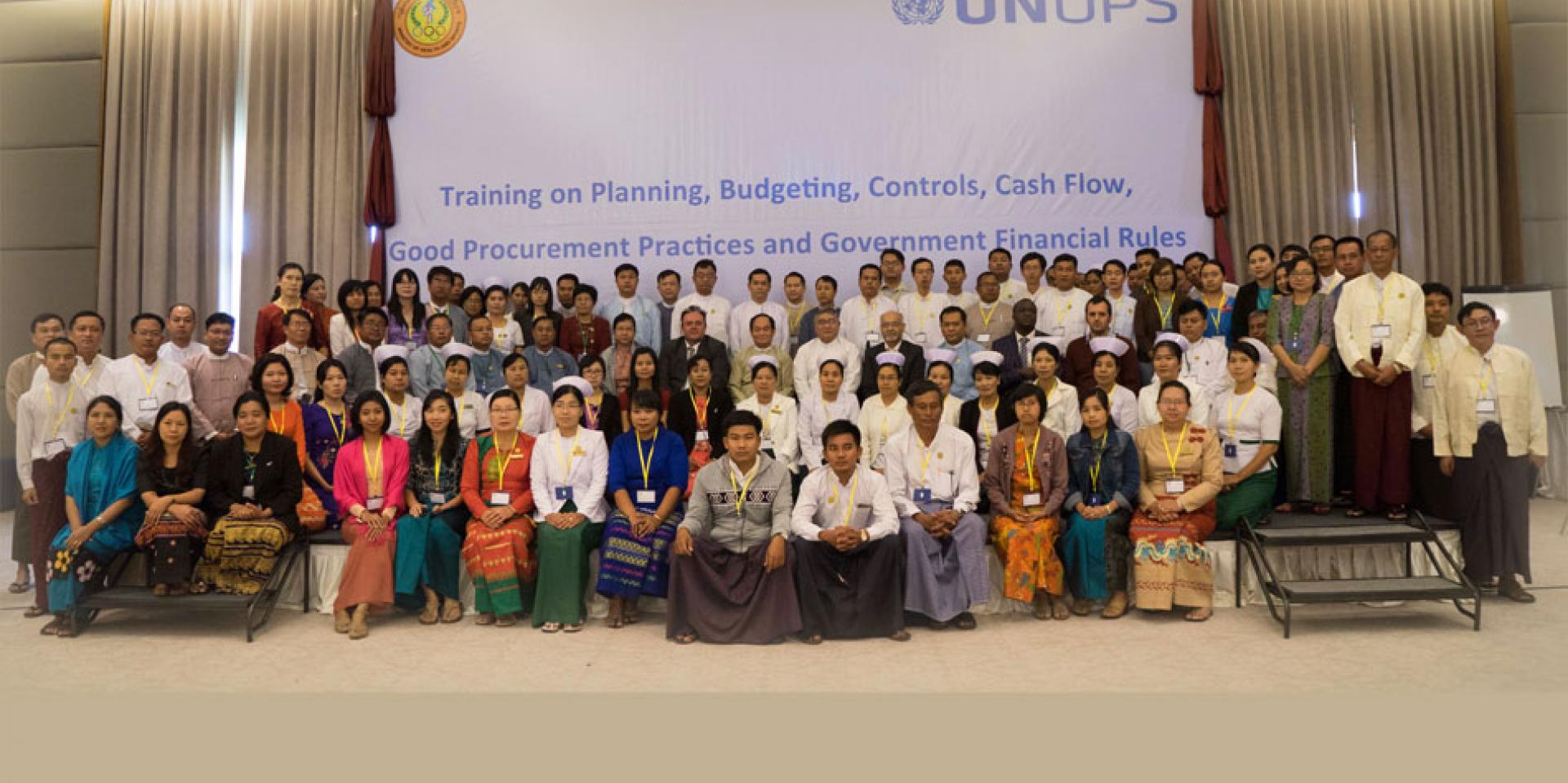
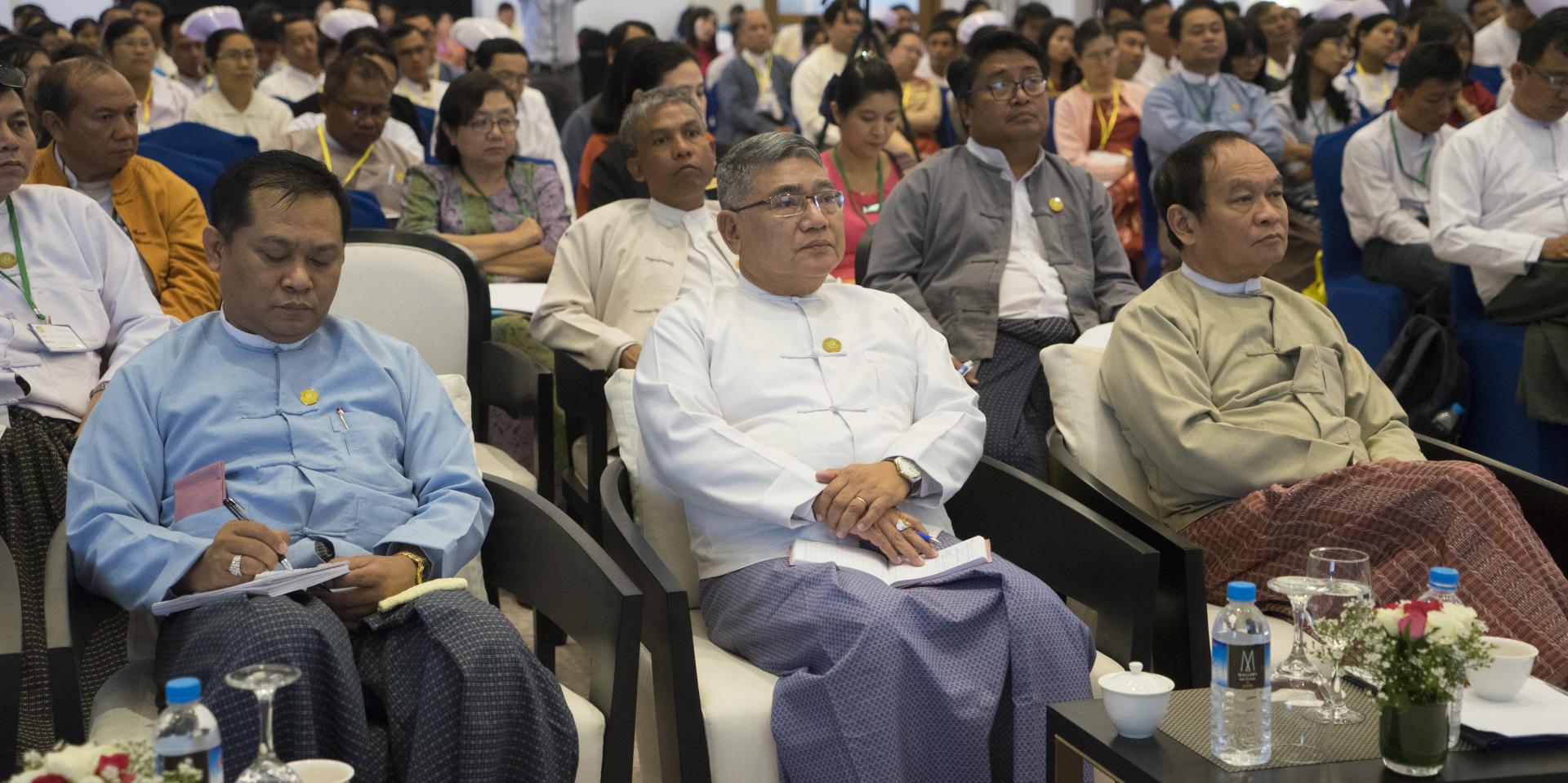
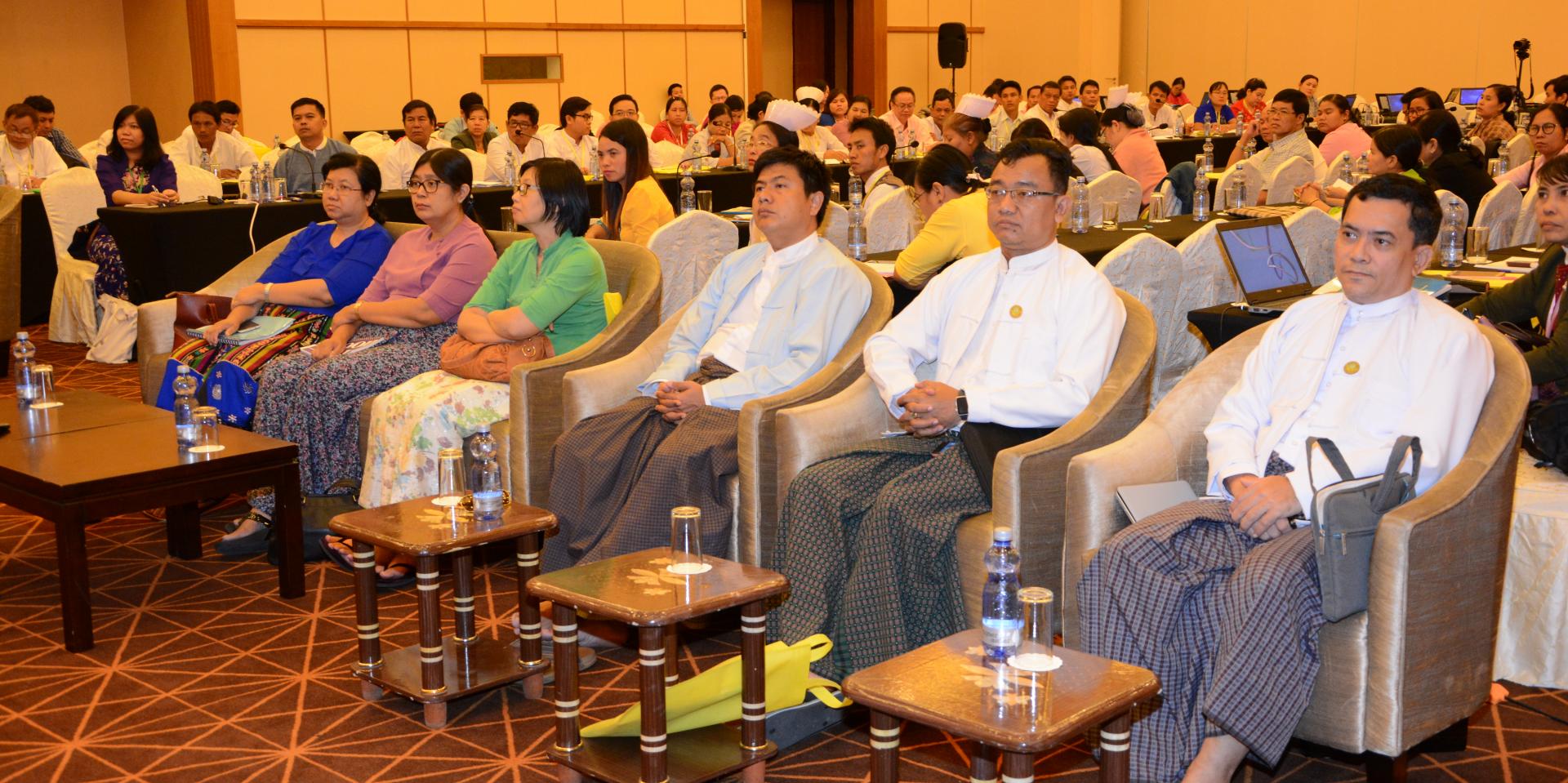
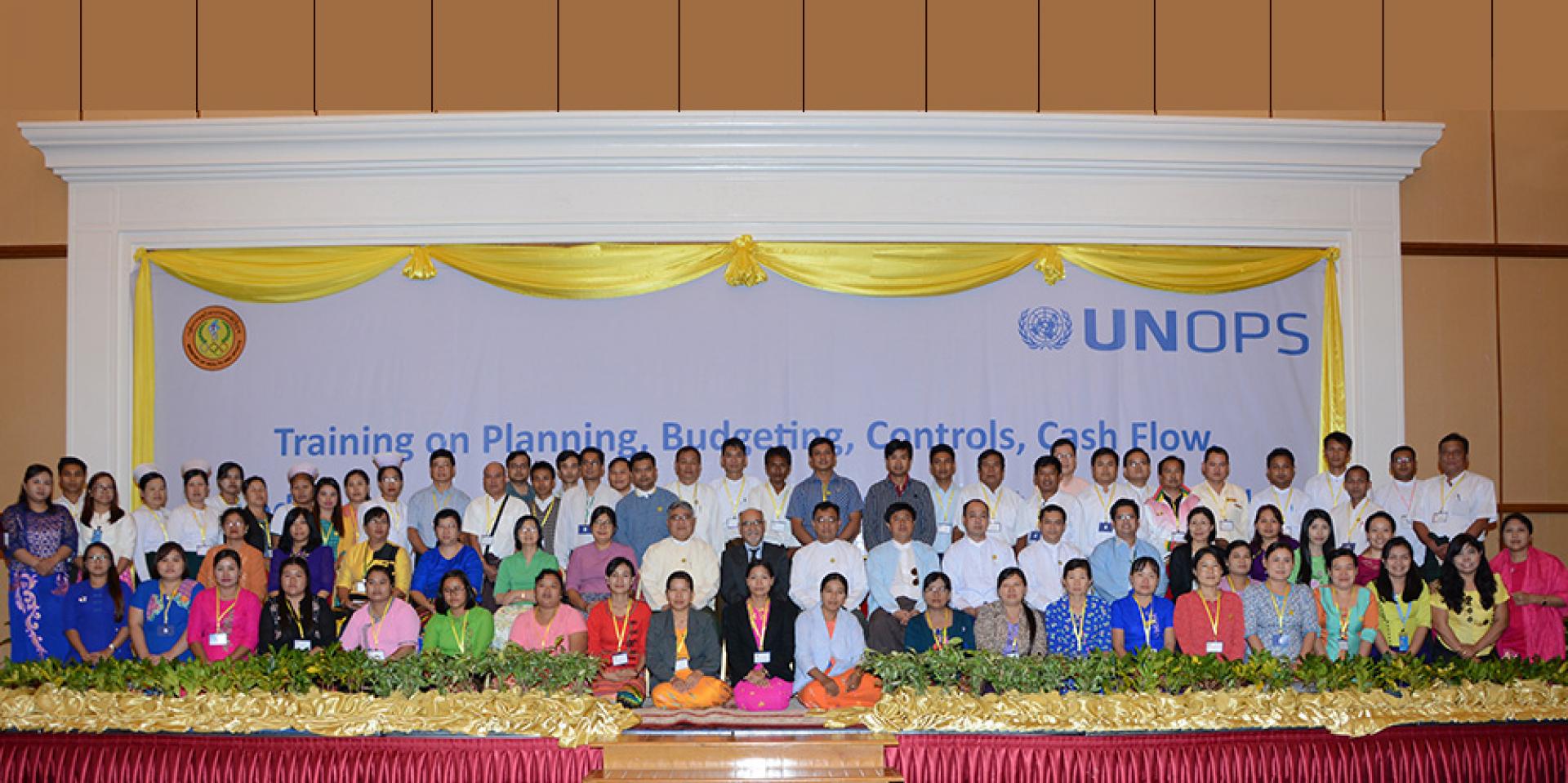
This large-scale national-level training has been held five times in recent years (from 2011 to 2016) during the seven years of Global Fund grant implementation in Myanmar. This year, participants also included financial clerks dealing with fund management, together with Township Medical Officers, Station Medical Officers, Township Health Nurses and Health Assistants.
H.E. Dr Myint Htwe delivered the opening speech, followed by a speech by Dr Thar Tun Kyaw, Director General, Department of Public Health, MOHS, and a brief presentation on ‘Planning and Budgeting as Health System Strengthening’ by Dr Attila Molnar, Programme Director, PR-UNOPS.
In his address, H.E. Dr Myint Htwe said that efficiency in financial management was important for effective healthcare service delivery, to achieve better results and higher impact. “An efficient financial management system is as important to the effectiveness of a healthcare programme as the cardiovascular system is important for the body to function, and health staff participating from across the country are is its life blood—the driving force of the whole healthcare system.”
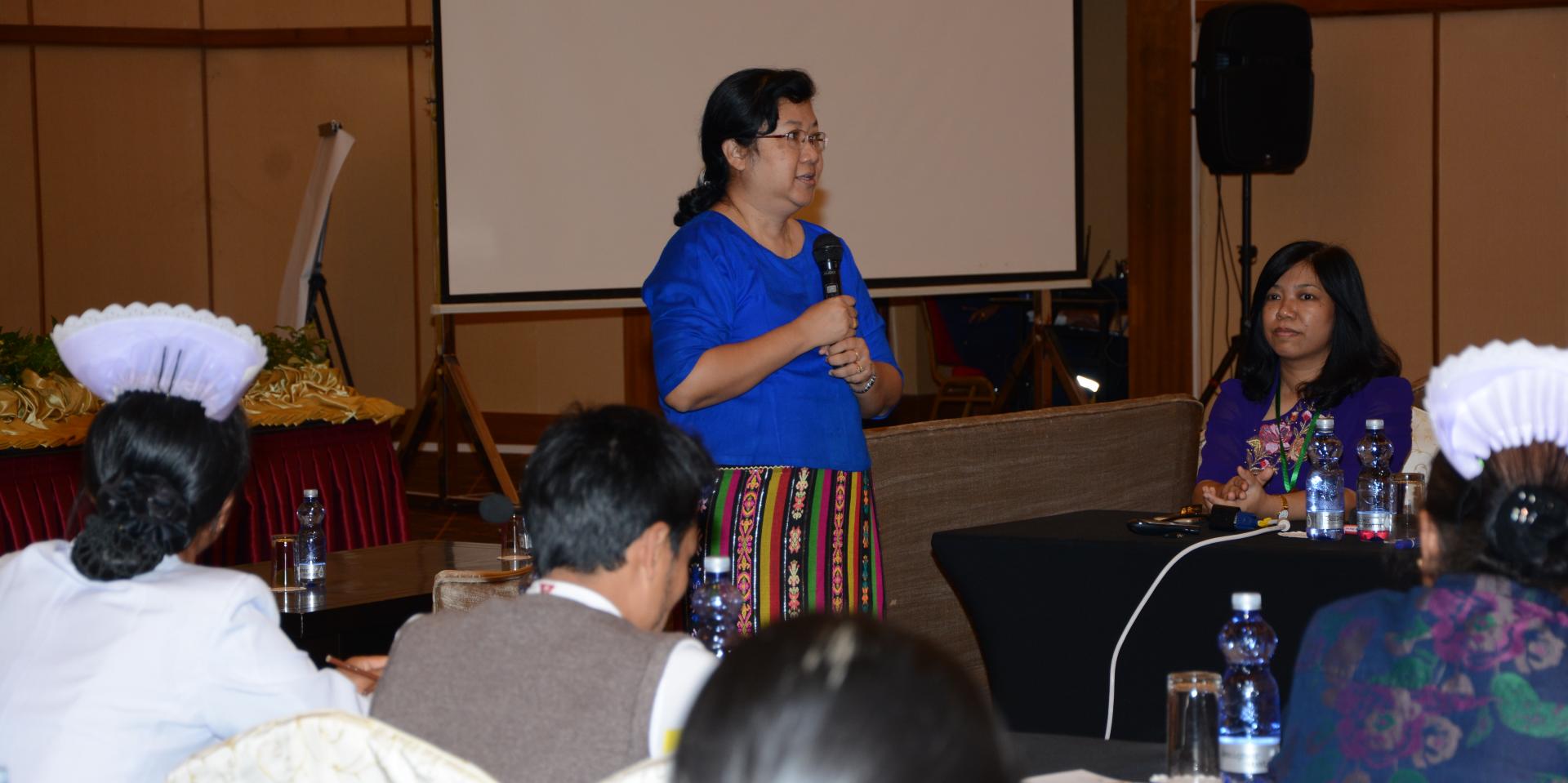
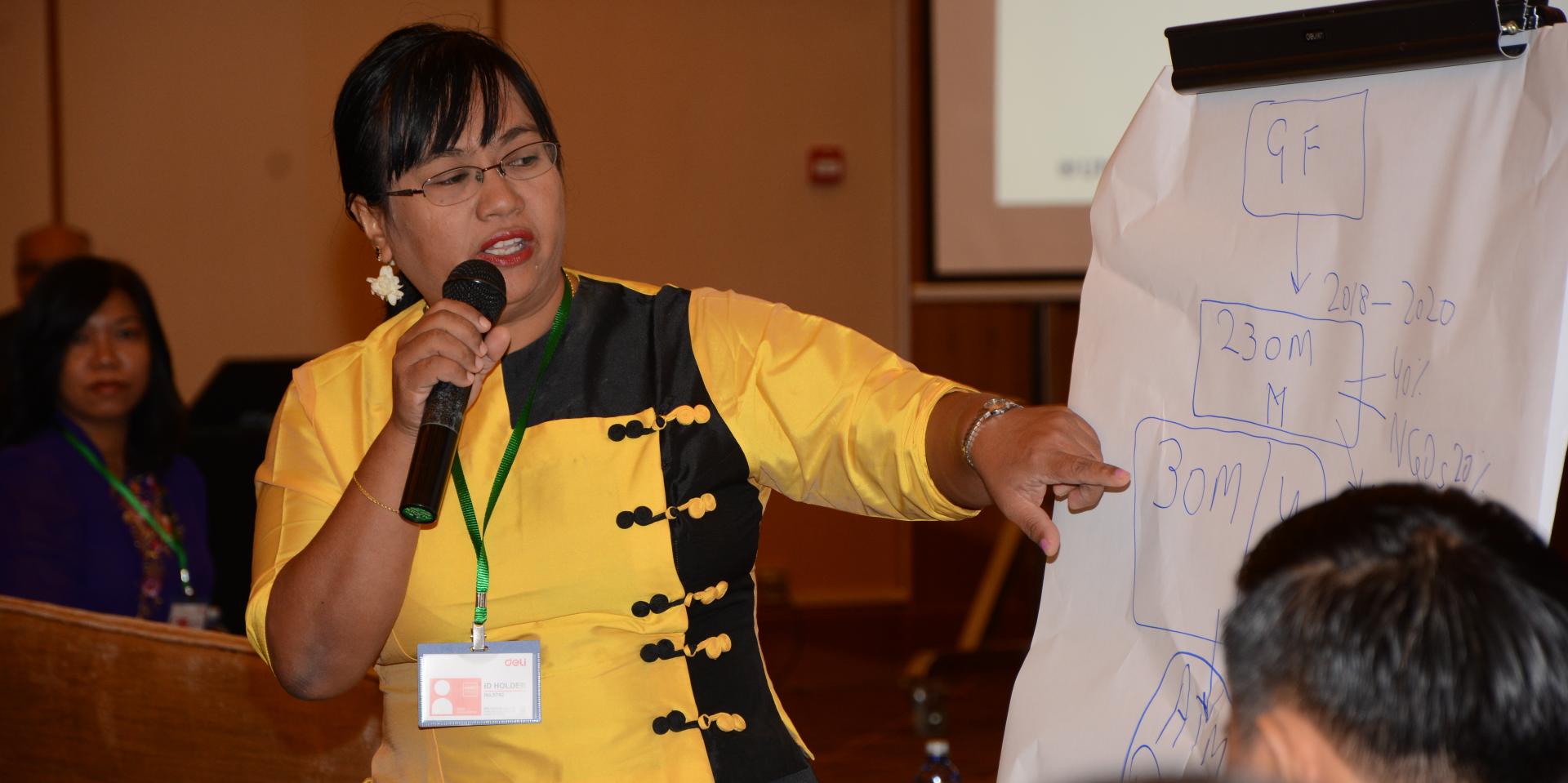
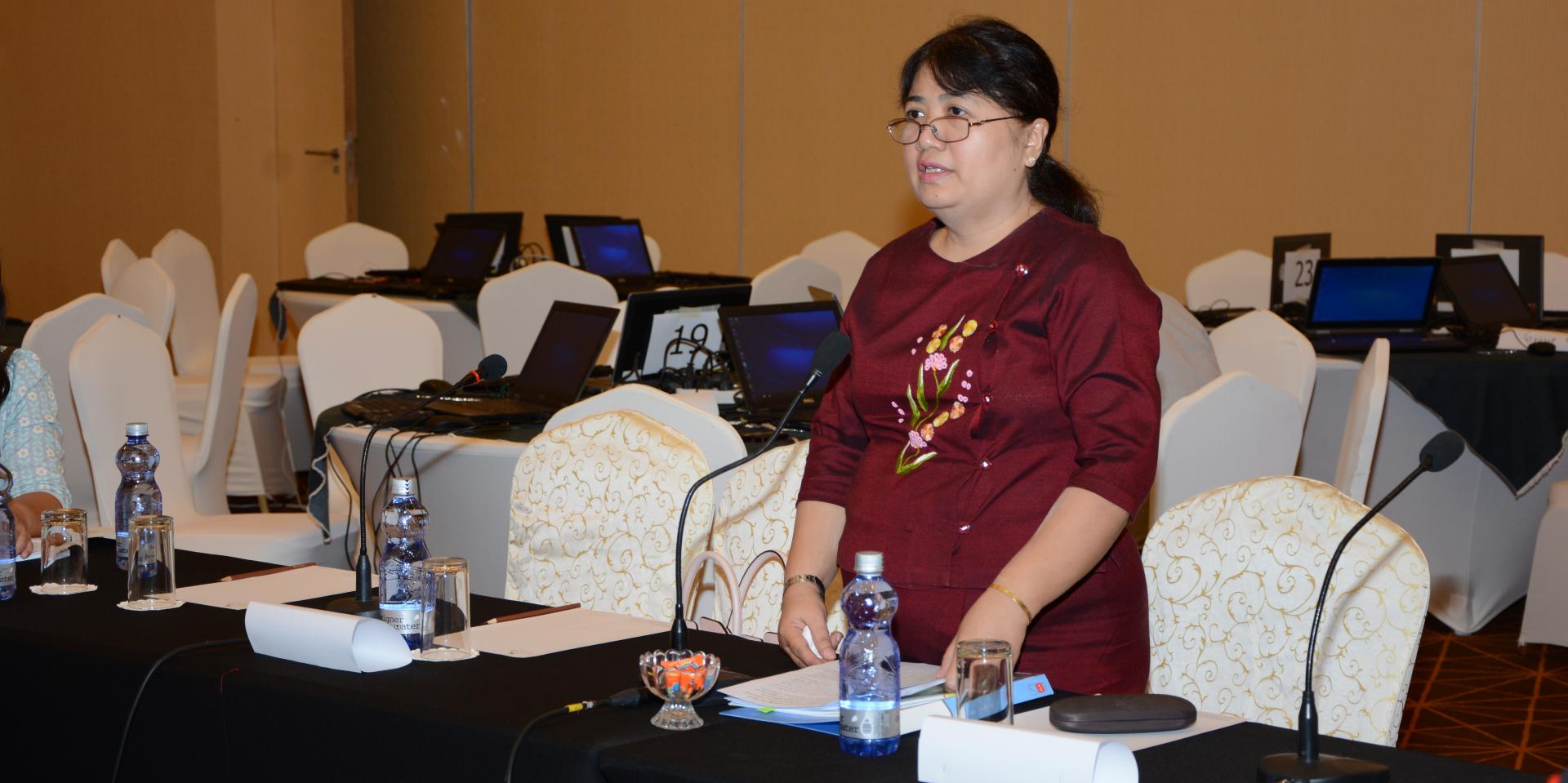
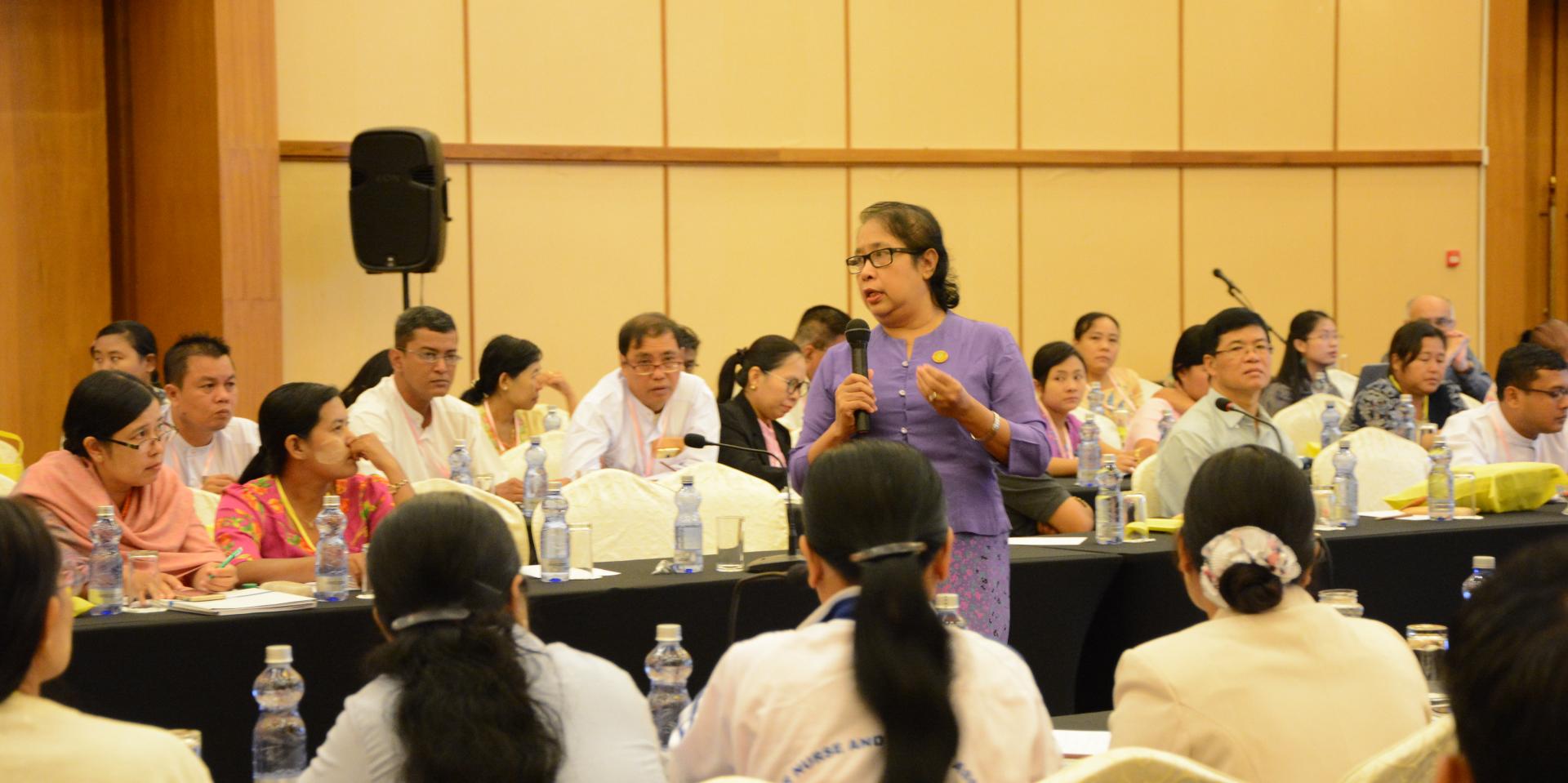
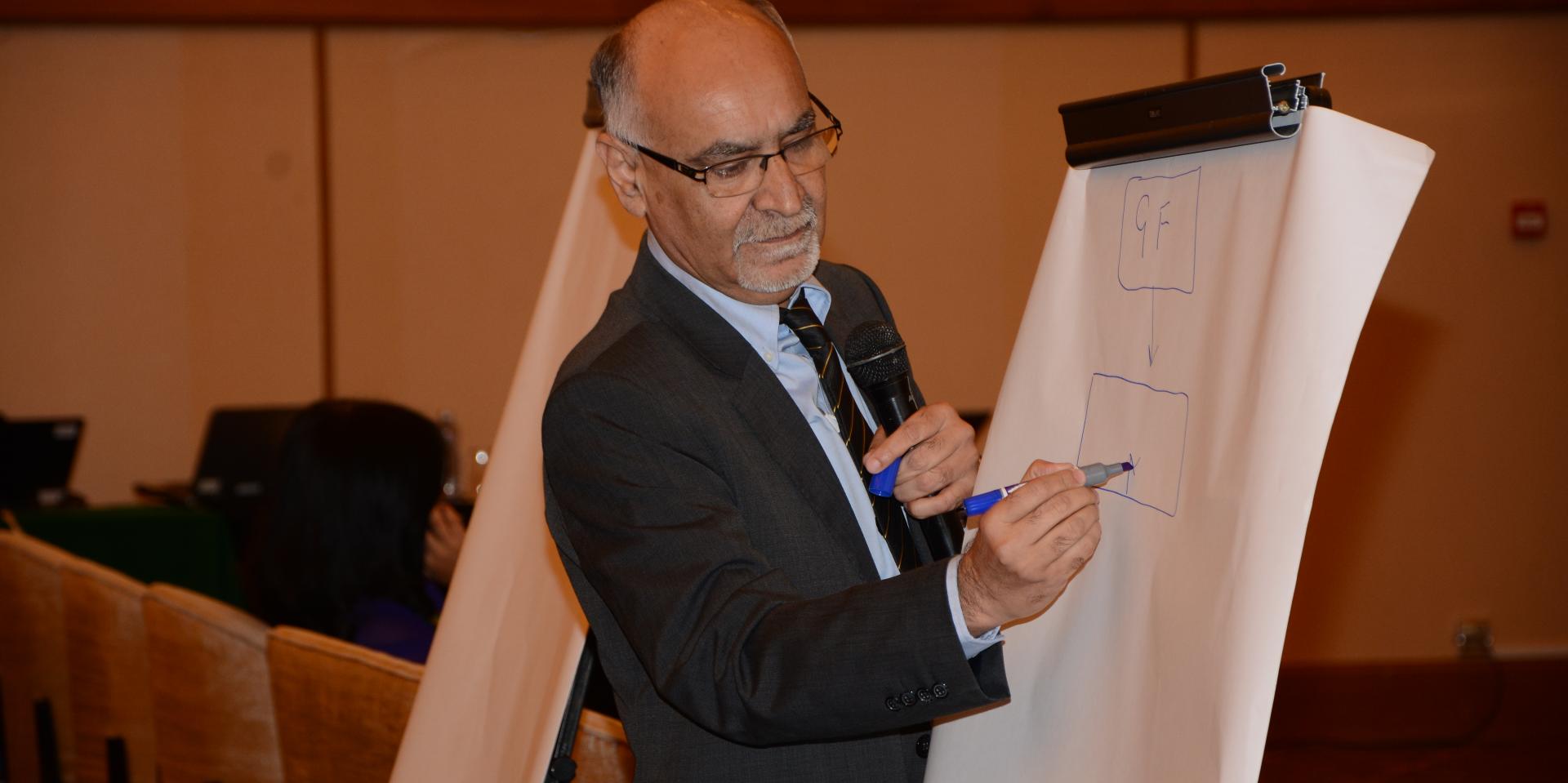
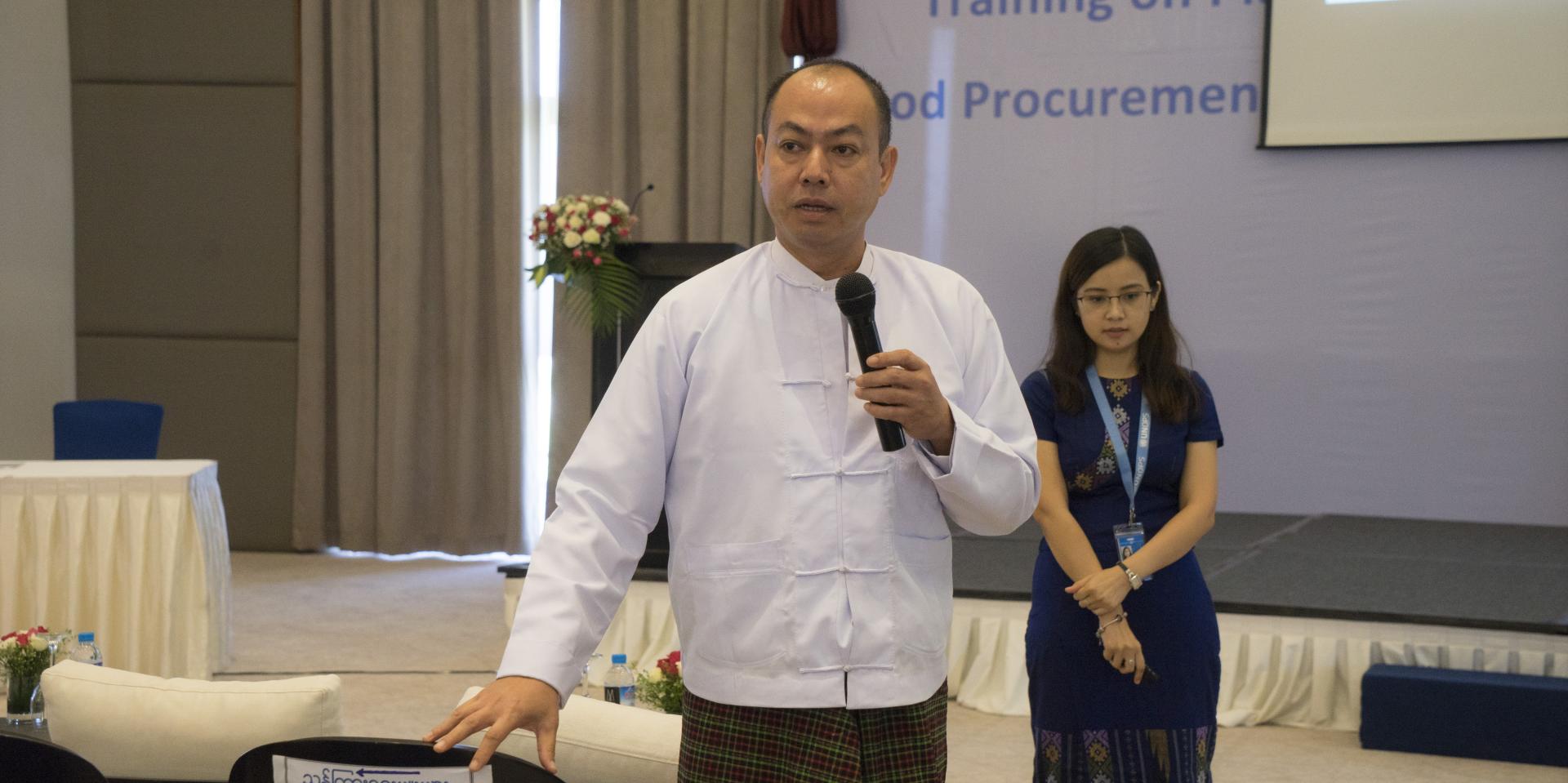
He continued that, “Technical skills as well as financial management and procurement and supply chain management skills are important for programme implementation.” He encouraged the participants’ strong will, determination and their involvement in the training, which would improve their skills and efficiency in delivering services to the best of their ability, to the ultimate benefit of all people of Myanmar. He stressed the importance of including a critical analysis of every training, and of using a focus group discussion after each training to assess its effectiveness.
He pointed out the need to streamline funding from different sources into one costed plan and one integrated management system, and recommended that a concise companion booklet should be developed based on the current training materials, which should be regularly updated and shared with all health staff across the country.
In his opening speech, Dr Thar Tun Kyaw said that for effective implementation, SOPs should be followed for planning, budgeting, cash flow and procurement. This would ensure efficient implementation with the least wastage of resources. As a result of the regular health system strengthening initiative and training, the Myanmar Health System has successfully absorbed more than 90 per cent of its Global Fund funding, and has been successful in achieving high results, to the best benefit of its people.
He highlighted the importance of systematic financial management, which starts with inclusive township health planning. He encouraged all health staff from the various levels of implementation, from central to periphery, to strengthen collaboration, both internally within MOHS and externally with different partner organizations, from both private and public sectors and United Nations agencies.
He also stressed the importance of collaboration with and capacity building of ethnic health organizations, and of access to healthcare services for hard-to-reach populations. He thanked the Global Fund, UNOPS and MOHS for their support to be able to organize the training successfully.
Dr Thandar Lwin, Deputy Director General, Disease Control Unit, DOPH, in her closing remarks to the first batch of training, said that the Global Fund grants have been successfully implemented in Myanmar for seven years, with almost 500 million US dollars spent efficiently without any wastage or mismanagement, and with full accountability and transparency, as implementation was according to the Managed Cash Flow SOPs. All participants can apply practical skills with improved efficiency in implementation, to the benefit of all patients in need. She continued that, since participants are not only involved with daily clinical healthcare, but also do financial management and are called on to fulfil other roles (such as overseeing renovation and construction of health centres, etc.), it was even more important to follow the SOPs for implementing health staff, to be accountable, transparent and auditable.
